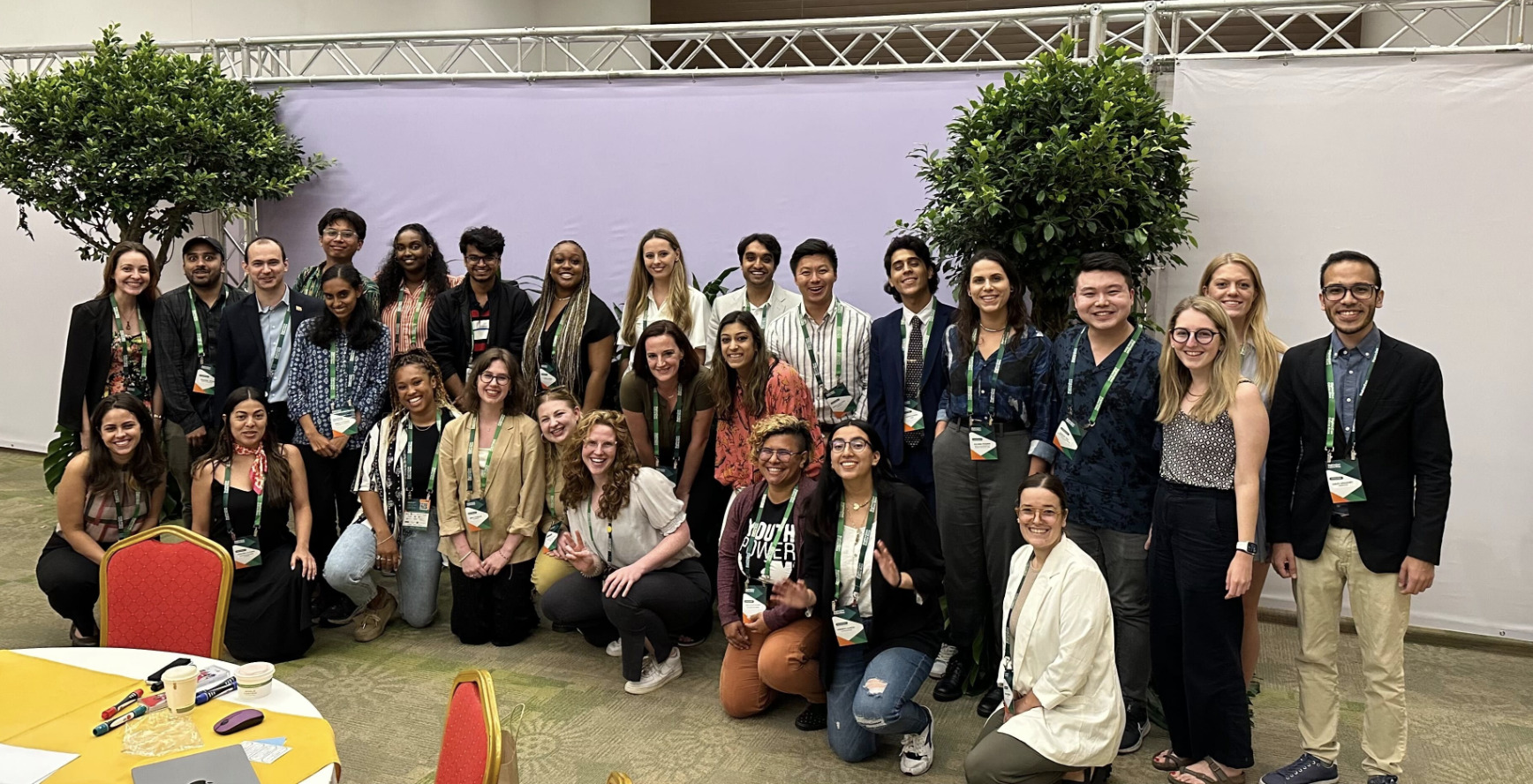This month, ICAAD’s Communication and Development Lead, Sara Lobo, attended the premier human rights and technology conference, RightsCon, and participated in the Young Leaders Summit.
The forum brought together human rights advocates, technologists, academics, data scientists, artists, activists, campaigners, designers, funders and more for four days of discussions, workshops and dialogues. The central theme was around how to protect and promote digital rights.

The Young Leaders Summit at RightsCon2023
Ensuring Fair Data Futures
The importance of accessible and equitable data was highlighted throughout the week as an essential tool to promote human rights and ensure social justice.
Some of the common challenges in data for advocacy are: the reluctance of governments and companies to provide transparent data, the difficulty of making sure data is representative, and ensuring that communities are included at every step of the data lifecycle.
Better efforts are needed to ensure marginalized groups have access to the data they need. They should also be trained to be data leaders of their communities, without needing to rely on external experts. In addition to supporting civil society, more transparent data helps promote human rights best practices across sectors – for example, to understand the human rights risks and opportunities of new technology, or to identify where there are gaps in providing essential health services.
In our work, we have seen first-hand that accessible and transparent data is key to improving access to justice. Our TrackGBV initiative is centered around improving access to information about how bias and discrimination manifest in the justice sector. With data, judges have been empowered to issue new directives to improve consistency in decision-making, and civil society has used our database in campaigns and policy briefs.
To ensure data is equitable, there must be: agency and inclusion in the data collection process; participation and feedback mechanisms as the data is collected, analyzed and presented for use; data literacy and skills training so the data can be widely interpreted and used; and funding to make all of this happen.
Spotlight on Climate Justice
The importance of a human rights and justice-based approach to tackling the climate crisis was also a focal point of the week.
Technologies to support those on the climate frontline, when co-designed in close partnership with those communities, have the potential to have tremendous impact. This includes tools to support investigative journalism, mechanisms to track attacks against land defenders, and platforms to get funding and support to those involved in direct action.
On the flip side, climate-affected communities also face issues like basic internet connectivity, and digital tools that are intended to help can also be harnessed for harm. It was clear in discussions that the most “high tech” solution are not always the most useful, and can even have adverse effects if the community is not involved, consulted and supported throughout the process. The lesson learned here is that interventions and funding must be highly adaptable and tailored to local contexts – with communities involved throughout.
This is why all of our interventions are predicated upon design justice principles: which centers people who are normally marginalized and uses collaborative, creative practices to build projects that can tackle structural inequity. You can find out more about design justice here.
AI Risks and Opportunities
AI was a hot topic at the conference, with a focus on both ChatGPT and immersive technologies. From a regulatory perspective, participants discussed the opportunity for us to “do it right this time” – learning from the mistakes made when trying to regulate the internet, and instead building a consistent framework for AI that is predicated upon human rights principles. The difficulties of doing this across jurisdictions and countries is one clear obstacle, as is the ability to litigate in cases involving individuals and/or technologies existing in different locations.
With respect to immersive technologies, the need for purpose limitation was frequently raised. This is the notion that personal data should only be used for the single purpose that it is needed – something that is currently widely unheeded, but would help to mitigate many issues, including data being shared and re-used for surveillance.
Collaboration is Key
The Young Leaders Summit was focused on bringing a multigenerational perspective to the conference, bringing together dozens of youth leaders across digital health, activism, climate justice, the arts and more. Participants spent the day hosting workshops and dialogues to discuss the role of youth movements in advancing social justice, how to apply a feminist perspective to digital rights, and more.
At RightsCon, thousands of individuals participated both in-person and online – highlighting the value of multidisciplinary collaboration and partnership. Some of these organizations include: The Global Partnership for Sustainable Development Data, which pioneers a data values project; DataGenero, which is working to increase access to justice for GBV victims in Latin America; Critical Infrastructure Lab, which is working to develop alternative infrastructure futures that center people and planet over profit; Queerly Stated, which has developed a feminist podcast telling the stories of organizations working to advance feminist and queer social justice work in the Caribbean; and so many more.
We’ll continue to keep you posted on developments across human rights and technology as we work together with partners from around the world to build a more equitable future.


